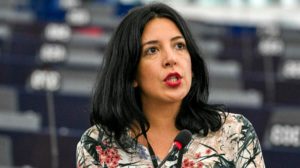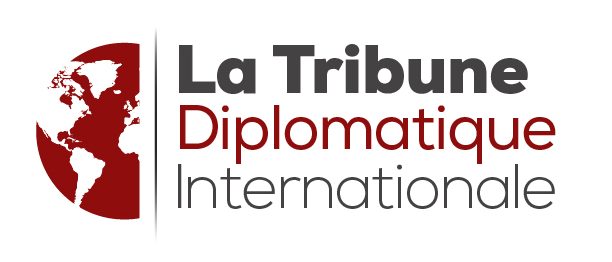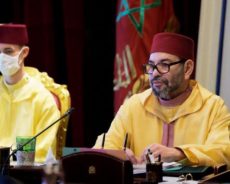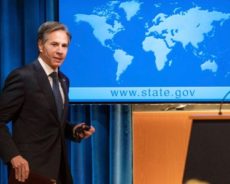
Mohsen Abdelmoumen: You recently denounced the fisheries agreement in place between Morocco and the European Union, which is currently the subject of legal proceedings. What are the reasons for your protest?
MEP Idoia Villanueva Ruiz: It is the European, and broadly the international legal framework, that give us enough reasons for denouncing. It was the General Court of the European Union (EGC) in application of the non-autonomous territories’ international jurisdiction and the European laws, the one who affirmed in the first instance that those agreements are illegal because, among other things, are not based on the required consent of the Saharawi people. We are in front of a possible recognition of the economical dimensions of people’s rights to a free determination, which should be welcomed and not challenged by appeals of the European Council and other Member States in the European Courts.
The Commission has tried to evade its obligations regarding the protection and promotion of international law by highlighting the questionable claim that the Agreements do not need the consent of the Saharawi people (through the negotiations with the Polisario Front as a legitimate representative) based on the expected positive economic impact and the consultation with other organizations located in the occupied territories that do not play the role of legitimate representatives.
However, the real interest behind these “procedural excuses” of the Commission seems to be the protection of the interests of Morocco and the European dominant classes, which includes both economic interests and the recognition of the territorial sovereignty of Morocco over the occupied territories. In this scenario, we will always be on the side of international law as the only way to manage international relations and protecting justice and equality, and therefore, supporting the struggle for freedom of the Saharawi people.
How do you explain the silence of most MEPs on the dramatic case of the Saharawi people who have been suffering for decades from the illegal occupation of their territory and the plundering of their wealth by Morocco?
EU-Morocco relations are crossed by multiple interests that go from increasing the economic profit of the Moroccan and European elites to the reinforcement of the alliances to manage the so-called “migration flows”. Basically, the idea of the “Fortress Europe” confronts us with the contradictions of the European project, based and legitimized by the promotion of human rights and wellbeing but that does not make enough efforts to protect the life and basic rights of the people trying to get into Europe. The externalization of this “dirty job” and the maintenance of privileges are represented by the silence of most European political forces and institutions in view of the terrible situation endured by the Saharawi people and the occupation of their territory.To this must be added Morocco’s hostile and virulent diplomatic strategy. It is no coincidence that, in the case of an authoritarian regime that violates the political, civil and economic rights of its people, there is almost no mention of these facts in the European Parliament. Morocco is a neighbour of the European Union, and the reason for the EU’s silence in this situation is also the pressure they exert on the Socialist Party in Spain and on other EU institutions. We know that their objective in the European Parliament is silence, that is, that we do not debate the deterioration of human rights in their territory or the occupation of Western Sahara in the Foreign Affairs and Human Rights Committees or in plenary.
You questioned Ursula von der Leyen’s executive on the fact that the Polisario Front should be part of the negotiations on the fisheries agreement. How do you explain the actions of the European Commission, which is negotiating behind closed doors and excluding the Polisario Front from these negotiations? Do you expect a response from Ursula von der Leyen’s Commission?
The Commission is obliged to respond to the questions that the MEP’s put forward, as long as those refer to issues under its competences, which I honestly think is the case. Thus, we are expecting a response that approaches the issue in a transparent way.
The Fishing Agreement with Morocco expires in less than three months and the resolution of the sentences is expected after summer, so there would be a time of legal insecurity that must be used to boost solutions based in the international and European legal framework. The legal basis of the General Court is powerful, and it would be a scandal if the European Court of Justice accepted the appealing terms and opened the door for a renovation of the Agreements in the same terms that were declared invalid. Considering this, we are probably facing the launch of negotiations aiming to look after the interests of the elites on both sides of the Mediterranean Sea.
European institutions cannot afford this. The only reason why the Agreements are still working, despite the previous sentence, is the “will of preserving European external affairs and the legal certainty of its international compromises” and there is no bigger expression of this legal certainty than making a political assumption of the legal terms exposed in the sentence. Once the sentence is emitted, we consider that the negotiations should start, but always including the Polisario Front as a legitimate representative of the Saharawi people, in line with what is stated by the international law.
Can we talk about democracy, freedom of expression and human rights in the European Parliament when the basic rights of the Saharawi people are being violated?
We can talk about the way ahead of us to make those principles real, universal and equal in its access. Both the political project and the legal European framework have relevant potential to become a tool for social transformation and respect of human rights. To achieve this, we need political willingness and the democratic strengthening of the European institutions. In this sense, the European institutions are the playground used by the right and the not-so-right wing parties to manipulate human rights and defend them only for a part of the population. The Parliament’s treatment of human rights is undoubtedly hypocritical and is hijacked by the majority groups, who decide in closed offices which human rights violations matter and which do not. The violations of the rights of the Sahrawi people are left out, but also those of those who die in the Mediterranean or those of minors and adults who sew for European companies in slavery in Asia.
The lead of the progressive forces and the policies of parties like Podemos in the European Parliament can boost this potential and highlight the double standards that are causing suffering while undermining the legitimation of the European Union as an internationally relevant actor. The EU finds its main legitimation in the ability of being an actor that defends rights and wellbeing. If this work line is not sustained, we will soon see the opening of gaps that could be fatal for the European project. It is then, a matter of obligation but also a matter of survival to promote the universalization of these rights.
After the MoroccoGate scandal that shook the European Parliament, don’t you think that corruption is endemic in European institutions? How did it come to this?
This is undoubtedly the worst corruption scandal in the history of the European Parliament. Despite attempts to play it down, there is a whole culture of revolving doors, opaque practices and non-existent controls. The resolution passed almost unanimously on 15 December included 15 measures, among them the mandatory transparency register (for MEPs and former MEPs to register their meetings with lobbyists), the creation of a legislative footprint (to track which MEPs push for changes and amendments to legislative texts) and the establishment of periods of incompatibility after leaving the seat, which seemed to us the least that Parliament could do. Interestingly, this resolution suspended the processing of all matters relating to Qatar (in that plenary session the suspension of visas for Qatari citizens was to be voted on), and the access of its representatives, but the same did not happen with Morocco, despite the fact that our Parliamentary Group called for these measures to be applied to any country involved in the scandal. In that plenary session, President Metsola dubbed the perpetrators, both within and without the institution, as enemies of democracy.
After months, the only thing President Metsola has done is presenting a 14-point plan, which only includes 4 of the points approved by the House, with the commitment that it will enter into force before the summer. Months have passed and nothing has changed, we have only heard fine words and are still waiting for strong anti-corruption measures to be implemented. It seems that, as time goes by, the main parliamentary groups want everything to go back to business as usual, which is intolerable.
We on the Left in the European Parliament put forward a series of measures to combat corruption, ensure transparency, defend those who leak irregularities committed within the institution or introduce clear rules to prevent conflicts of interest and foreign interference, among others. In the face of such a case of corruption, we need to shed light, create rules to combat it and do whatever is necessary to prevent practices that undoubtedly shame the public and should shame the European Parliament.
In any case, this issue does not only concern the European Parliament and is related to a widespread practice of impunity and opacity in the EU institutions. The case of the European Parliament is all the more striking because it is the only democratically elected institution and therefore possessed a certain popular legitimacy. But the truth is that closed-door negotiations, veto power, unilateral actions and elections of senior officials are constantly taking place behind closed doors in the institutions with the most power: the Council, the Commission and the European Central Bank. There are no mechanisms of control, transparency and accountability that expose the influence or justification that led to certain decisions contrary to the interests of the people.
How do you explain that Morocco can act with impunity by corrupting MPs? Is Morocco above the law?
What Morocco’s government and every other needs to understand is that European democracy is not for sale. And that starts with the understanding of the members of parliament themselves. For that we need clear and strong rules as soon as possible. I return to the idea of the need to reformulate the European project in such a way that respect for international law is at the center of our foreign relations. The current logic of prioritizing the economic and political interests of the elites leads us to situations such as the impunity and silence against Moroccan actions in Parliament.
The European Institutions, but also the actions of the European governments like the external affairs approach led by Pedro Sánchez in Spain, need to show more strength against Morocco’s blackmail. It is worthless to build a relationship that is based in the lack of trust and the pursuit of non-legitimate interests like the extension of the Moroccan territory.
We know that Sahrawi activists have been languishing in Moroccan jails for years, suffering inhuman treatment. When will Morocco be condemned for the abuses it commits in the illegally occupied territory of Western Sahara?
The condemnation towards the violations of human rights committed by the Moroccan government in Western Sahara has already been published by UN rapporteurs and NGOs like Human Rights Watch or Amnesty International. Evidence is there, but certainly there is a lack of elements such as the needed reinforcement of the human rights monitoring component of MINURSO, that would help to obtain more information from the territory itself, considering the strong entrance and communication limitations that people are facing there.
Thus, the questions for me are when will the European Parliament denounce this situation, how will it do it and what will be its impact on our relations with the Moroccan government. After condemning the limitations of the freedom of expression last January the door is open to take similar steps, but it’s also true that in order to condemn the abuses of the Moroccan government and without being hypocritical, we have to address the responsibility of some Member States and EU institutions in the maintenance of the occupation and the lack of recognition of the right to a free determination of the Saharawi people, in the ways stated at international level. Both steps must be taken together.
How do you explain the radical turnaround of the Sanchez government on the Western Sahara issue?
Sánchez’s radical turn was a unilateral and undemocratic move, which goes against the position of Podemos and the position of his own party, which did not have the backing of Podemos as a partner in government and which goes against the position of the majority of the popular will as shown by the joint declaration of condemnation of this position that we promoted in the Congress of Deputies and the Senate. This is important to keep in mind, because it is the key for the next progressive majority with Podemos to reverse this decision.
There are two main interests in the Socialist Party around Morocco that could explain this shift: economic interests and the management of the “migration flows” in the southern borders of Spain. The first one is based on a narrow lecture that says that economic exchanges between Spain and Moroccan and Saharawi territories must be dealt with through the government of Morocco, in order to protect some relevant economic areas, such as fishing. We recognize the need to protect this economic activity, but we say that the Polisario Front is the legitimate representative to negotiate with in this matter and that betting for it does not lead to a lack of protection.
The migration issue is more complex and also has a huge weight in European politics, as it requires transforming the European migration policies, especially the European Asylum and Migration Agreement. These policies do not put in the center the solutions focused on respecting and promoting human rights. As we said above, they externalize the “dirty work” to stop the arrival of migrants, refugees and asylum seekers. As long as European leaders and institutions do not face the urgent need of building alternative strategies on this issue, we will keep being blackmailed by the Moroccan elites, who among other issues, demand Spain and Europe to betray the Saharawi people.
Algeria does not stop being attacked by the Moroccan regime and its media relays, even though it has always respected international law by supporting the UN resolutions on the decolonization of Western Sahara. How do you explain this relentlessness of the Moroccan regime against Algeria?
On the question of the Sahara, the Moroccan government’s policy is clear: to silence any voice that works in favour of international resolutions and defends the right of the Saharawi people to complete their process of self-determination in a free and fair manner. Being Algeria one of the main voices, both in the United Nations and in the African Union, defending the need to respect international law regarding the necessary culmination of the decolonization process of the Sahara, these attacks are not surprising.
In this way, it’s easy to understand the attack on the European Parliament after condemning the Moroccan regime’s constant attacks on freedom of expression and which was responded to with accusations of interference. There were not very subtle menaces to the Spanish Socialist MEPs before that vote took place, with the result of them abstaining. Also, French MEPs were advised not to vote in favour, and after some of them did so, there was a diplomatic rebuttal against the French government. This behaviour demonstrates that the Moroccan government acts like a bully in terms of its relations with European governments and institutions.
The Russian Federation has taken over the presidency of the UN Security Council and has decided to put the Western Sahara issue back on the table. Do you think that the Saharawi people will finally have the right to a referendum on self-determination, or will it be prolonged for years or even forever?
We continue to trust that international law and UN resolutions will lead to a solution sooner rather than later and the Saharawi people will be able to access their right to a free determination. Respect for these legal frameworks should not depend on the interests or agenda of any country, which is why international relations must be democratised and brought closer to the real interests of the peoples: peace, justice and well-being. In this case, those rights have their maximum expression in the access to the right to a free determination.
Since we entered the institutions in 2015, Podemos has supported the Saharawi cause at all levels of government, and we do so with the confidence that the right to a free determination will become a reality.
The parliamentary commission in charge of investigating Pegasus travelled to Spain to hear from the people spied on and noticed that no one wanted to get involved in the investigation. How do you explain this silence?
We find it shameful that in the face of Moroccan espionage against journalists, jurists, human rights defenders and political leaders such as the President of the Government, the Minister of the Interior, the Minister of Defence or the Director of the CNI, as stated by several media outlets, the response is so restrained, not to say timid. If the spying had targeted other countries, I am sure that President Sánchez would have demanded a firmer explanation.
The European Parliament’s PEGA Committee is investigating the use of this Israeli spying software to which the government of Morocco has access. The use of this software shows that regulating it is not possible, which is why we demand a ban on it. During this visit to Spain, the members of the committee were able to hold meetings with various political representatives, journalists, members of civil society, etc., but they did not have the same luck with the government representatives they had requested a meeting with, such as the Minister of the Interior, Fernando Grande-Marlaska, or the Minister of Defence, Margarita Robles.
This response has to do with the change in President Sánchez’s relationship with the Moroccan government, staged at the beginning of February, when he agreed with the Moroccan government to ‘avoid what offends the other party’, as reflected in the Spanish press. To this must be added the media consensus not to communicate actions that might anger or inconvenience the Moroccan government. Only the belligerent actions of our neighbour have provoked interest in the Spanish national press, but, in general, there is no position denouncing blackmail, Morocco’s influence on the decisions of the Presidency or the human rights violations committed every day in that country.
Interview realized by Mohsen Abdelmoumen
Who is Idoia Villanueva Ruiz?
Idoia Villanueva is a Spanish politician from Podemos, Member of the European Parliament since 2019. She has a degree in Computer Engineering and a Master’s in Business Administration and Management. She has worked for 10 years in the management and development of technological projects. Nominated by Podemos, she was appointed Senator by the Parliament of Navarra in September 2015. She has held the position of spokesperson in the Foreign Affairs Committee and in the European Union Committee in the Upper House. In February 2017, she became a member of the Podemos executive. In her electoral programme for the 2019 elections, Idoia Villanueva pledged, among other things, to make tax havens disappear in Europe and to ensure a green and feminist horizon.
In the European Parliament, she is Vice-President of the Delegation to the ACP-EU Joint Parliamentary Assembly (an assembly composed of Members of the European Parliament and representatives and elected representatives of the African, Caribbean and Pacific [ACP] signatory states of the Cotonou Agreement), member of the Committee on Foreign Affairs, the Delegation for relations with the People’s Republic of China, and the Delegation for relations with India. She is also a substitute member of the Committee on the Environment, Public Health and Food Safety.




